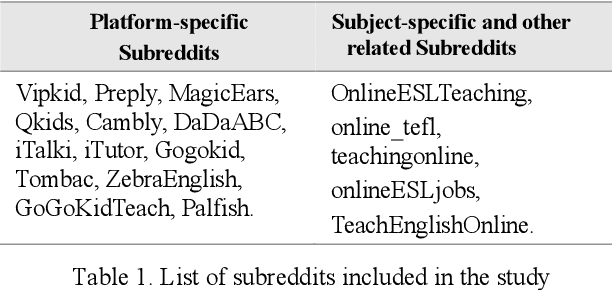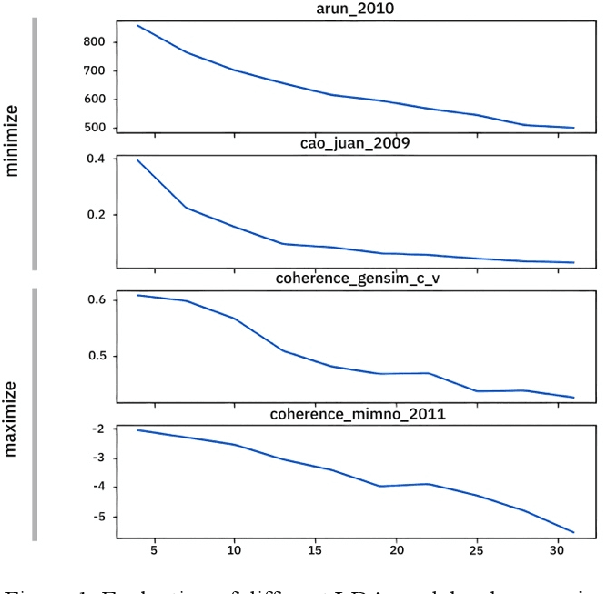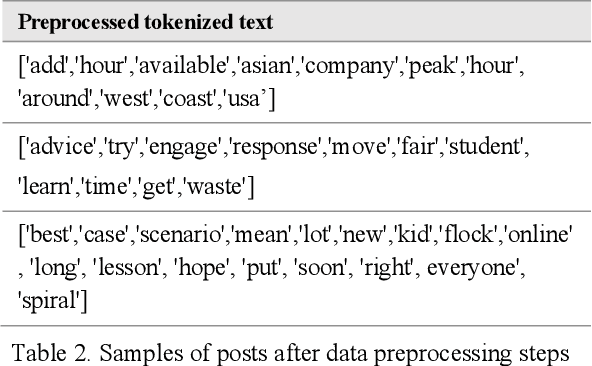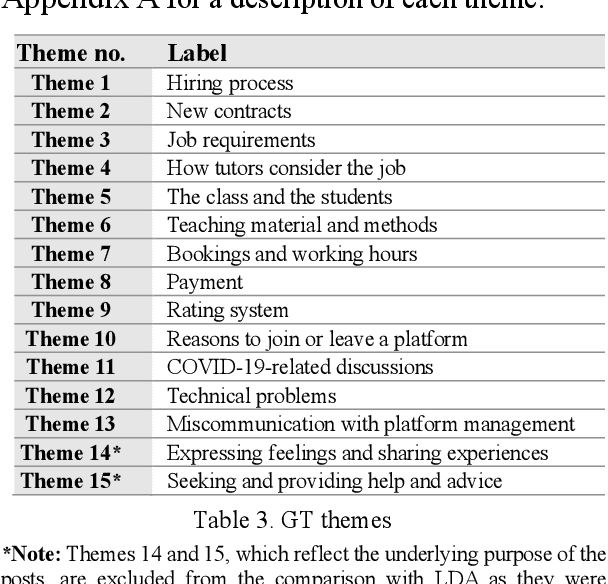Lama Alqazlan
A Novel, Human-in-the-Loop Computational Grounded Theory Framework for Big Social Data
Jun 06, 2025Abstract:The availability of big data has significantly influenced the possibilities and methodological choices for conducting large-scale behavioural and social science research. In the context of qualitative data analysis, a major challenge is that conventional methods require intensive manual labour and are often impractical to apply to large datasets. One effective way to address this issue is by integrating emerging computational methods to overcome scalability limitations. However, a critical concern for researchers is the trustworthiness of results when Machine Learning (ML) and Natural Language Processing (NLP) tools are used to analyse such data. We argue that confidence in the credibility and robustness of results depends on adopting a 'human-in-the-loop' methodology that is able to provide researchers with control over the analytical process, while retaining the benefits of using ML and NLP. With this in mind, we propose a novel methodological framework for Computational Grounded Theory (CGT) that supports the analysis of large qualitative datasets, while maintaining the rigour of established Grounded Theory (GT) methodologies. To illustrate the framework's value, we present the results of testing it on a dataset collected from Reddit in a study aimed at understanding tutors' experiences in the gig economy.
A User-Centered, Interactive, Human-in-the-Loop Topic Modelling System
Apr 04, 2023Abstract:Human-in-the-loop topic modelling incorporates users' knowledge into the modelling process, enabling them to refine the model iteratively. Recent research has demonstrated the value of user feedback, but there are still issues to consider, such as the difficulty in tracking changes, comparing different models and the lack of evaluation based on real-world examples of use. We developed a novel, interactive human-in-the-loop topic modeling system with a user-friendly interface that enables users compare and record every step they take, and a novel topic words suggestion feature to help users provide feedback that is faithful to the ground truth. Our system also supports not only what traditional topic models can do, i.e., learning the topics from the whole corpus, but also targeted topic modelling, i.e., learning topics for specific aspects of the corpus. In this article, we provide an overview of the system and present the results of a series of user studies designed to assess the value of the system in progressively more realistic applications of topic modelling.
Using Computational Grounded Theory to Understand Tutors' Experiences in the Gig Economy
Jan 24, 2022



Abstract:The introduction of online marketplace platforms has led to the advent of new forms of flexible, on-demand (or 'gig') work. Yet, most prior research concerning the experience of gig workers examines delivery or crowdsourcing platforms, while the experience of the large numbers of workers who undertake educational labour in the form of tutoring gigs remains understudied. To address this, we use a computational grounded theory approach to analyse tutors' discussions on Reddit. This approach consists of three phases including data exploration, modelling and human-centred interpretation. We use both validation and human evaluation to increase the trustworthiness and reliability of the computational methods. This paper is a work in progress and reports on the first of the three phases of this approach.
 Add to Chrome
Add to Chrome Add to Firefox
Add to Firefox Add to Edge
Add to Edge